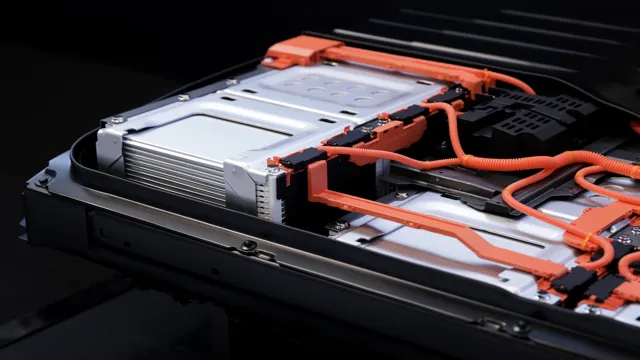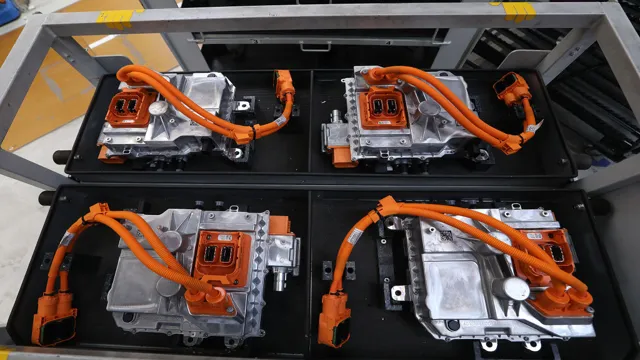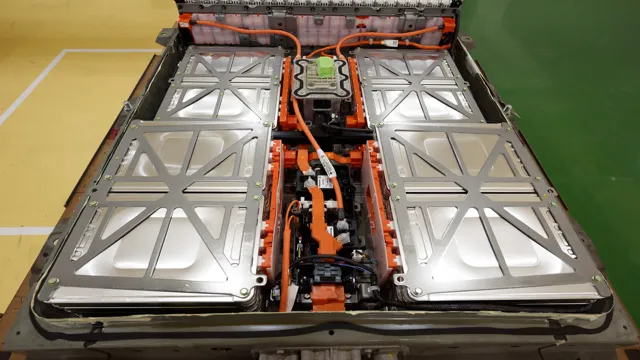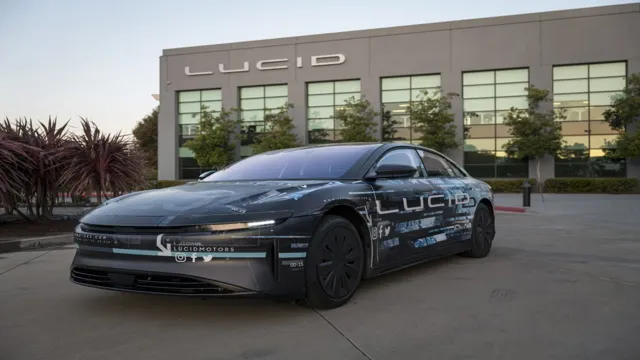Powering Up: The Evolution of Electric Car Batteries – Are They Getting Better?
Electric cars have certainly come a long way in recent years. From their initial debut on the market, they have been rapidly improving in terms of design, functionality, and efficiency. One of the biggest factors contributing to this progress has been advancements in electric car battery technology.
As more people seek out sustainable transportation options, improvements in battery technology are helping to make electric cars a more viable and desirable option for consumers. Over the last few years, there have been some notable improvements in electric car battery technology, and it looks like there is plenty of room for even more progress in the years to come.
Overview of Current Battery Technology
Yes, electric car batteries are indeed getting better! As technology continues to advance, so do the options for car batteries. Today’s batteries are much more efficient, reliable, and longer-lasting than their predecessors. Lithium-ion batteries are the current most popular battery type that is widely used for electric cars.
They provide a high energy density and charge quickly, enabling electric cars to travel farther distances on a single charge. Additionally, battery technology has also progressed to include more charging options, such as rapid charging. This means that drivers can charge their electric cars quickly and easily, making them more user-friendly.
As electric car technology continues to advance, we can expect even better batteries to be developed in the near future, with longer lifespans, higher energy densities, and faster charging times. So, if you’re considering buying an electric car, you can rest assured that the battery technology will continue to get better over time.
Lithium-Ion vs Other Battery Types
Battery technology has come a long way in recent years, with a number of different types of batteries available on the market. While Lithium-Ion batteries have become increasingly popular due to their high energy density and long lifespan, there are also other battery types that are worth considering. One such option is lead-acid batteries, which have been used for many years and are still commonly used in applications such as automobiles and backup power systems.
Another alternative is nickel-cadmium batteries, which are known for their durability and ability to function in extreme temperatures. However, it’s important to note that these batteries have their own advantages and disadvantages, and may not always be the best choice for your specific needs. In any case, it’s important to consult with a knowledgeable expert and consider your own unique requirements before investing in any type of battery technology.
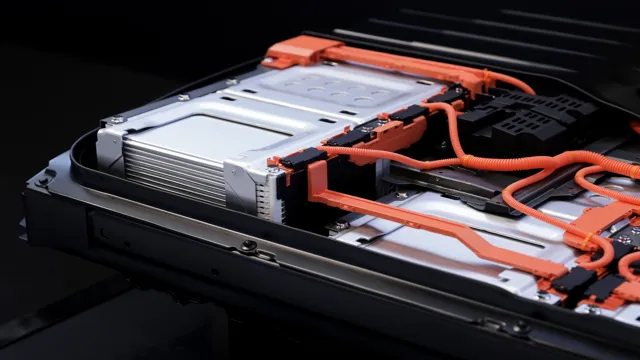
Capacity and Range Improvements
When it comes to electric vehicles, one of the most significant factors limiting their widespread adoption is their battery capacity and range. However, current battery technology is making strides in addressing this issue. Lithium-ion batteries are at the forefront of this technology and have made significant improvements in terms of capacity and energy density.
Additionally, advancements in battery management systems have made it possible to squeeze out more power from these batteries while maintaining their integrity and improving their longevity. Furthermore, research into new materials such as graphene, solid-state electrolytes, and lithium-sulfur batteries is ongoing and holds promise for even greater capacity and range improvements. As a result, electric vehicles are becoming more functional and practical alternatives to traditional gas-powered vehicles, making them a viable option for everyday transportation.
Research and Development
Electric car batteries have come a long way since they were first introduced. Advances in research and development have led to significant improvements in their performance, reliability, and longevity. So, are electric car batteries getting better? Well, the answer is a resounding yes! Manufacturers are continually improving battery technology with new chemistries, designs, and production techniques.
As a result, today’s electric car batteries provide more miles of driving range, faster charging times, and are more affordable than ever before. Furthermore, with increased investment and incentive programs, the future of electric vehicle batteries looks even brighter. From advancements in solid-state batteries to battery recycling and reuse, the electric car battery technology is continuously evolving to meet the demands of the modern world.
As a result, it’s becoming more feasible for drivers to go fully electric without range anxiety or other concerns. In conclusion, electric car batteries are improving, and we can expect to see further advancements in the future.
Solid-State Battery Technology
Solid-state battery technology is a modern and advanced approach to batteries that’s currently being researched and developed in various scientific institutions worldwide. These batteries use solid electrolytes instead of the typical liquid electrolytes, making them less prone to leakage and overheating. The solid-state battery technology has the potential to improve the efficiency, durability, and safety of batteries, making it ideal for use in various fields such as electric vehicles and electronics.
Moreover, the technology is expected to reduce the cost of production, rendering batteries more affordable and accessible for mass consumption. With ongoing research and development, the solid-state battery technology can revolutionize the battery industry by providing efficient and long-lasting solutions that cater to the needs of the modern world.
New Battery Materials and Chemistry
New battery materials and chemistry have been a burgeoning area of research and development in recent years, as the need for more efficient and sustainable energy storage solutions continues to grow. One area of focus has been the development of solid-state batteries, which replace the traditional liquid electrolytes with a solid polymer material. This not only increases safety and stability, but also allows for higher energy density and faster charging times.
Another promising avenue of research is the use of new materials, such as lithium-sulfur batteries, which have the potential to store up to five times more energy than traditional lithium-ion batteries. However, there are still challenges to be overcome in terms of durability and cycle life. With continued investment and innovation, it is likely that new battery materials and chemistry will play a critical role in our transition to a more sustainable, renewable energy future.
Testing and Improvements in Manufacturing
When it comes to manufacturing, research and development are crucial in ensuring that the products produced meet the needs of the target market. Testing and improvements play a significant role in the development process. The research and development team performs a series of product tests to determine the product’s overall quality, performance, and suitability for the intended use.
These tests could range from simple visual inspections to complex simulations of real-world scenarios. Once the results of the tests are obtained, the team can identify areas that need improvement and formulate methods to address them. This process ensures product quality and allows manufacturers to continuously evolve their products, keeping up with the changing needs of the market.
It is important to note that research and development require significant investments, but the long-term benefits far outweigh the initial costs. Investing in research and development can lead to an increase in revenue, market share, and competitive advantage. In summary, research and development, accompanied by testing and improvements, are critical when it comes to manufacturing products that meet the needs of consumers.
Impact on the Automotive Industry
It’s no secret that electric car technology has come a long way in recent years, and one of the biggest drivers of this progress has been improvements in battery technology. The short answer is yes, electric car batteries are getting better all the time. Today’s batteries are far more reliable, efficient, and longer-lasting than ever before, which has had a significant impact on the automotive industry.
For one thing, it has opened up new markets for electric vehicles that were previously thought to be out of reach due to limited battery life and range. It has also made electric cars more accessible and affordable for average consumers, which has led to a surge in demand for them in recent years. Additionally, advances in battery technology have helped to reduce the environmental impact of electric cars, making them a more sustainable transportation option than traditional gasoline-powered vehicles.
All of these factors combined have put the automotive industry on a path towards a future where electric cars will be the norm rather than the exception.
Growing Popularity of Electric Vehicles
The growing popularity of electric vehicles is having a significant impact on the automotive industry. With increasing concern about the environment, more and more people are turning to electric cars as a cleaner, greener alternative to traditional petrol or diesel vehicles. Not only do they produce zero emissions, but they also offer a smoother, quieter driving experience and lower long-term ownership costs.
As a result, many car manufacturers are expanding their electric vehicle lineups and investing in research and development to improve battery technology and increase driving range. This shift towards electrification is leading to a major disruption in the automotive industry, with traditional automakers facing stiff competition from new, tech-savvy companies focused on electric vehicles. However, with the right investments and innovations, the automotive industry as a whole has the opportunity to benefit from this growing trend in sustainability and embrace a brighter, cleaner future.
Reducing Carbon Emissions and Energy Consumption
When it comes to reducing carbon emissions and energy consumption, the automotive industry is certainly not exempt from the impact. The need for sustainable practices and eco-friendly innovations has been a driving force behind the development of hybrid and electric cars. These vehicles are becoming more and more popular as they offer a cleaner and more efficient mode of transportation.
Additionally, car manufacturers are now designing vehicles with lightweight materials to decrease their energy consumption and carbon footprint. The shift towards these sustainable solutions has been beneficial for both the environment and the industry as a whole. Consumers are also becoming more environmentally conscious and are choosing automobiles that align with their values.
Overall, the automotive industry has a significant role to play in reducing carbon emissions and energy consumption, and it’s a task that they are taking seriously.
Future of Electric Car Batteries
Electric car batteries are definitely getting better and the future looks bright. With advancements in battery technology, we’ve seen an increase in their capacity, efficiency, and lifespan. This means that electric cars can now travel much farther on a single charge and offer a more reliable driving experience.
One of the most exciting developments in electric car batteries is the use of solid-state technology. This technology offers a much higher energy density than current lithium-ion batteries, which means they can store more energy in a smaller space. This not only allows for longer ranges but also faster charging times and a longer overall lifespan for the battery.
Additionally, researchers are exploring new materials such as graphene and silicon to improve the performance of batteries in the future. With all these innovations, it’s clear that electric car batteries are improving and will continue to do so. So if you’re considering an electric car, now is a great time to make the switch!
Conclusion
It’s clear that electric car batteries are definitely getting better – there’s no doubt about it. But it’s important to remember that this is a continuously evolving technology. Just when we think we’ve reached the peak of battery performance, advancements in materials, manufacturing processes, and engineering result in even greater gains.
So if you’re hesitant about switching to an electric vehicle because of range anxiety or slow charging times, don’t worry – the future of electric car batteries is bright (literally). With innovation and perseverance, we can expect electric vehicles to become even more practical, convenient, and affordable for the everyday driver.”
FAQs
How much have electric car batteries improved in the last decade?
Electric car batteries have significantly improved in the last decade, with the average range increasing from around 80 miles in 2011 to over 250 miles in 2021.
Are electric car batteries reaching their limit in terms of improvement?
Not necessarily. While there may be limits to the physical properties of batteries, advancements in technology and materials science continue to make improvements possible.
Will advancements in battery technology make electric vehicles more affordable in the future?
It’s possible. Improvements in battery technology are likely to lead to lower-cost batteries, making electric vehicles more cost-competitive with traditional gas-powered cars.
How do electric car batteries compare to traditional car batteries in terms of environmental impact?
While both types of batteries have environmental impacts, electric car batteries generally have a lower carbon footprint due to the fact that they produce less greenhouse gas emissions over the lifetime of the vehicle.



